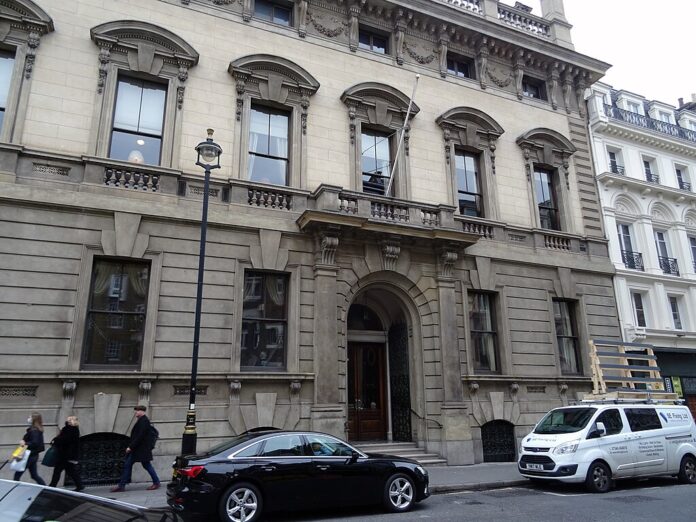London’s exclusive Garrick Club, previously all-male, opens its doors to women following a historic vote
In a landmark decision, members of the Garrick Club, an exclusive private members’ club in London, have voted to allow women to join the institution, ending its 193-year tradition of being all-male.
Located in the heart of London’s West End, the Garrick Club has long been known as a bastion of male privilege, counting among its members some of the most influential figures in British society. However, pressure had been mounting on the club to reconsider its stance on female membership, particularly after recent revelations about its membership list and the resignation of high-profile members like Simon Case, head of the Civil Service, and Richard Moore, chief of MI6.
Embed from Getty ImagesThe vote, which took place on Tuesday, saw nearly 60% of members in favour of admitting women. This decision marks a significant shift for the club, as previous attempts to allow female members had failed to garner the necessary two-thirds majority.
The club’s decision to open its doors to women came after an analysis of its rules by senior judges, who found that there was nothing in the club’s constitution preventing women from joining. According to the 1925 Law of Property Act, the word “he” in legal documents can also be interpreted to mean “she.”
Notable members of the Garrick Club, whose membership list was published by the Guardian newspaper, include Deputy Prime Minister Oliver Dowden, Levelling Up Secretary Michael Gove, former cabinet ministers Sir Jacob Rees-Mogg, Kwasi Kwarteng, and Robert Buckland, as well as BBC broadcasters John Simpson and Melvyn Bragg.
The club has been contacted for comment on the recent vote.
Analysis:
Political Impact: The decision to admit female members reflects changing attitudes towards gender equality and may have implications for the political landscape, signalling a move towards greater inclusivity in traditionally male-dominated spaces.
Social Reflection: The vote to allow women into the Garrick Club mirrors broader societal shifts towards gender equality and challenges long-standing norms of male privilege in exclusive institutions.
Psychological Aspect: For many women, the decision represents a victory and a sense of validation, challenging feelings of exclusion and discrimination.
Sociological Angle: The move to admit female members highlights the ongoing struggle for gender equality and the importance of diversity in social institutions.
Fashion Culture: While not directly related, the decision may influence perceptions of gender and inclusion within broader cultural circles, including the fashion industry.
